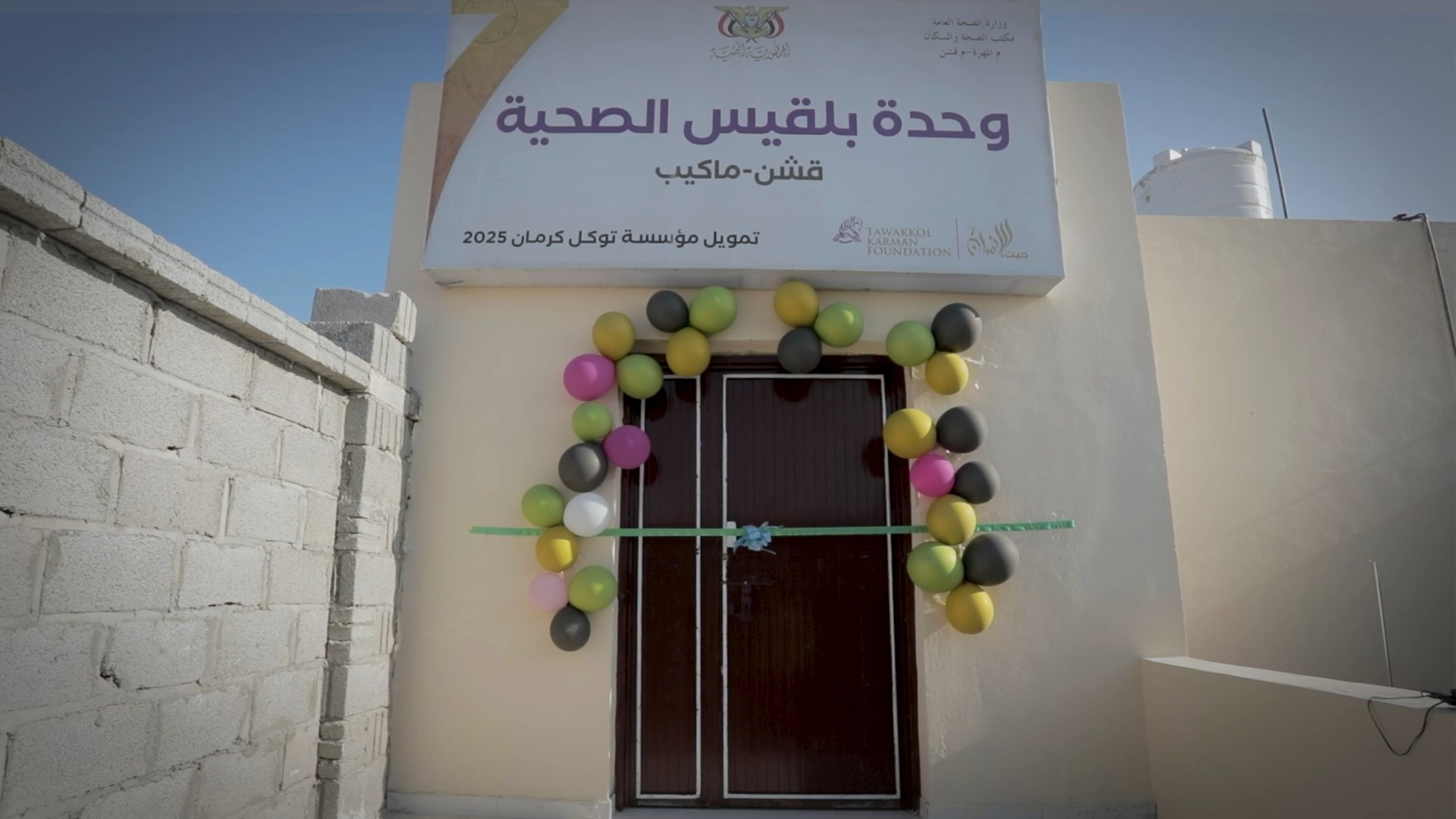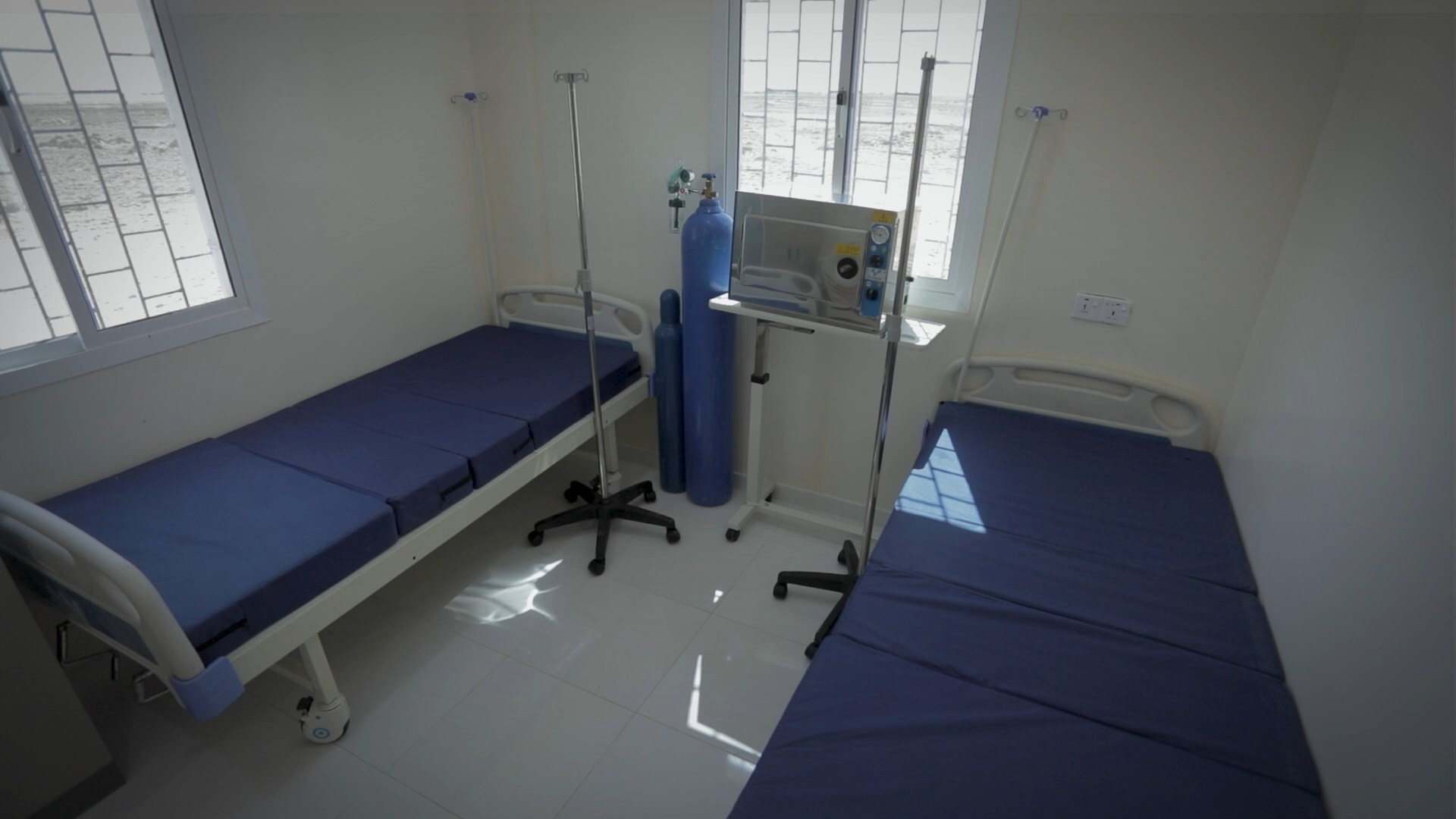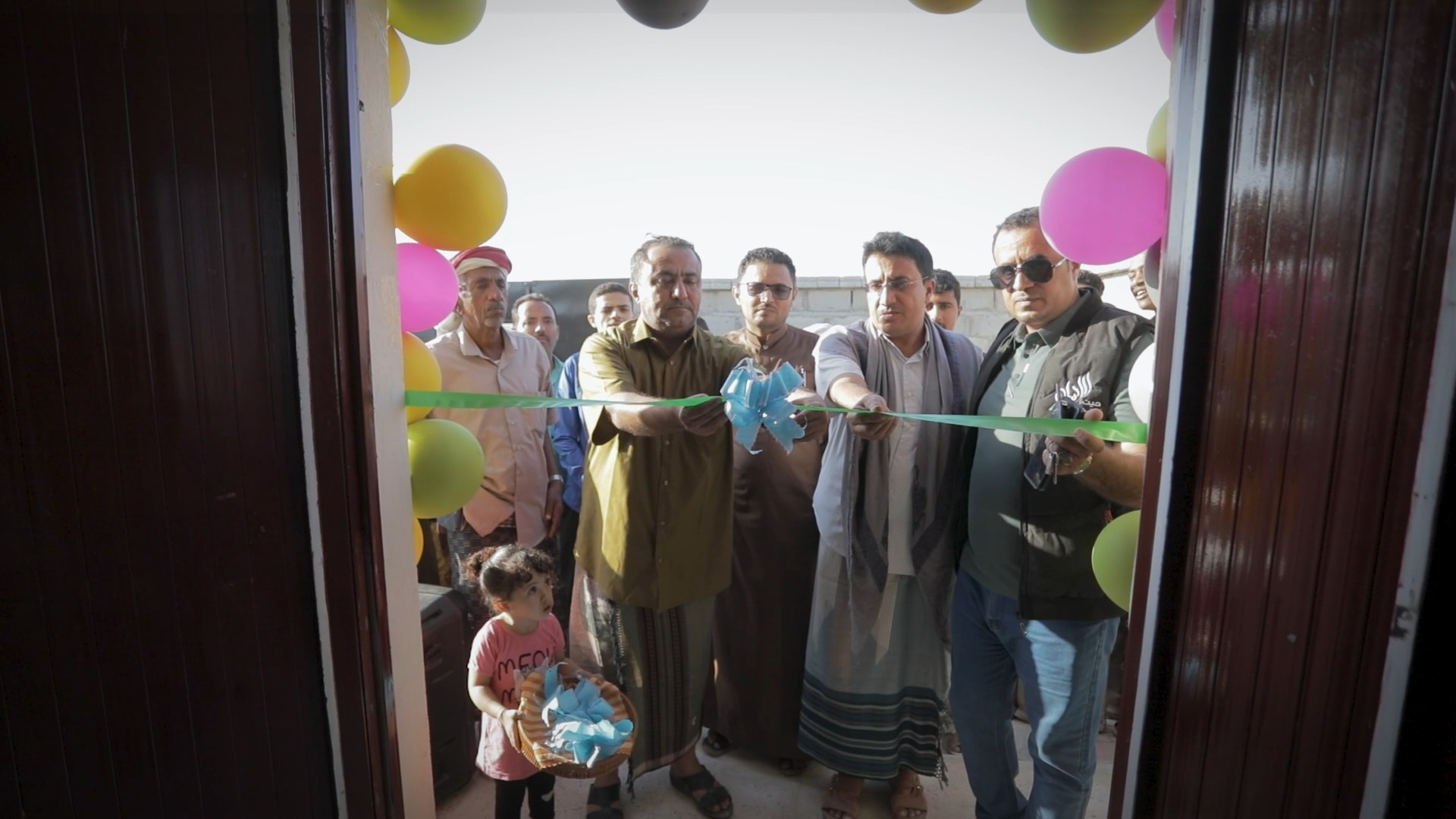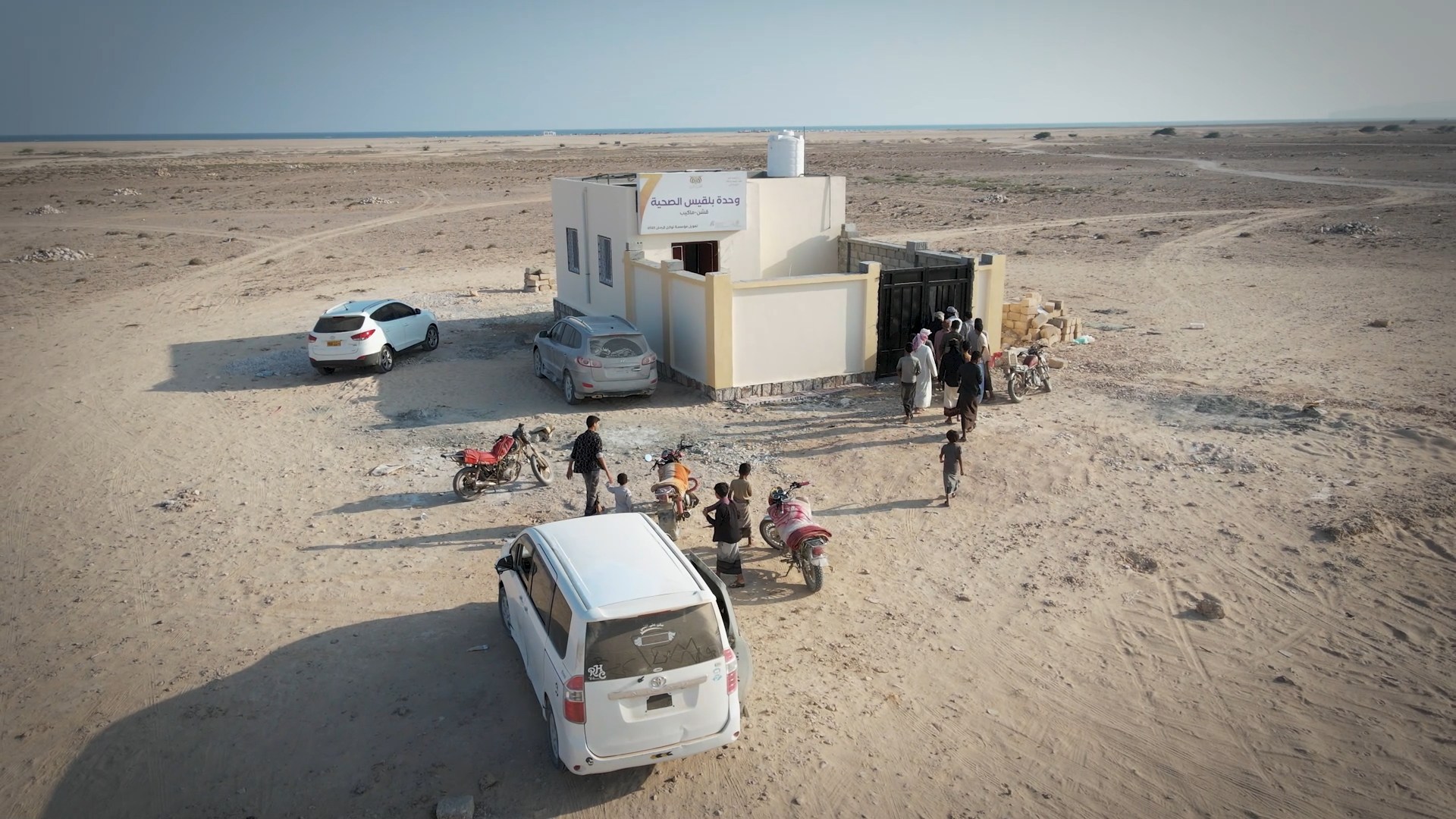In a humanitarian step aimed at easing the struggles of remote communities, Tawakkol Karman Foundation, through its "Haith Al-Insan" program in its seventh season, has established a fully equipped health center in Makeeb, Qishn District, Al-Mahra governorate. The initiative responds to the long-standing health crisis affecting over 2,000 residents in the area.
For decades, residents of Makeeb faced major challenges due to the absence of a local health facility. Patients had to travel more than six kilometers to reach the district center in Qishn—a journey made even harder in emergencies due to a lack of transport and fuel shortages.
Dr. Abdullah Ba-Wazir, the only doctor in the area, described the daily struggle: "I leave home at 8 a.m. and go from house to house to treat patients, because there has been no health center here for a long time. This is a daily hardship that seriously affects people’s lives, especially in urgent cases."
Ali Saad, a Makeeb resident, shared: "We face serious health problems, especially with fevers and complicated deliveries. Sometimes we can’t find transportation, and even if we do, fuel is hard to come by. We've lost lives because of the delay in reaching hospitals."
Mohammed Muslim, a local community elder, emphasized: "In any medical emergency, having a doctor or health center nearby is essential. Without these services, illnesses worsen and sometimes lead to death. A local health unit will ease much of our suffering."
In response, Haith Al-Insan launched the construction of a comprehensive health center in Makeeb to provide essential medical care and reduce the burden of long-distance travel for treatment.
The new facility includes key departments such as a consultation room, maternity ward, waiting area, and other necessary facilities, along with a protective perimeter wall.
The project was met with wide appreciation from the community, who celebrated it as a long-overdue solution to a decades-old crisis. Residents described the initiative not just as a humanitarian effort, but as a message of hope affirming every person's right to access dignified healthcare—no matter how remote their home may be.





